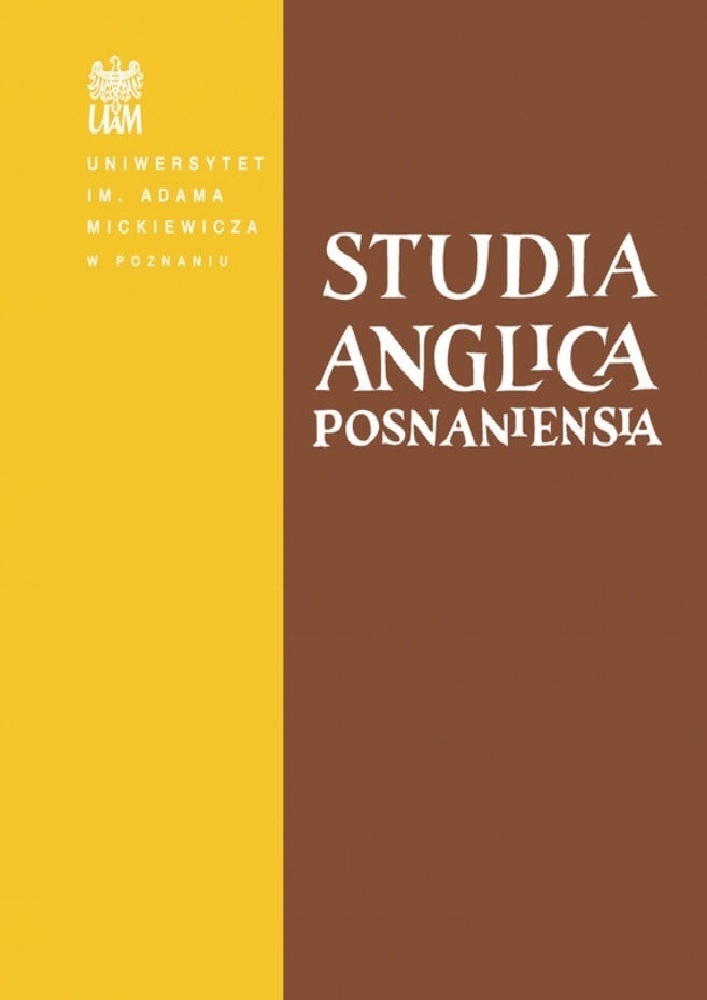Abstract
In “Discourse in the Novel” Mikhail Bakhtin argues that heteroglossia - a diversity of voices or languages - is one of the essential properties of the novel. The distinct languages spoken by individual characters (referred to as “character speech”), he maintains, inevitably affect “authorial speech”. In experimental fiction, where “authorial speech” is often eliminated altogether, one can speak of the most radical instance of novelistic polyphony. Whereas in The Sound and the Fury, The Waves and B.S. Johnson’s House Mother Normal in place of the narrator the reader is presented with several parallel voices which offer an alternative version of some of the same incidents, Will Eaves’s The Absent Therapist (2014) comprises 150 one- or two-page monologues, each of which is delivered by a different nameless speaker. The book, described by reviewers as an “experimental novella”, a “miniature novel”, and an “anti-novel”, is devoid of any frame that would account for the coexistence of so many stories. The only interpretive clues are provided in the paratext: the title and the dedication from 1 Corinthians (“There are, it may be, so many kinds of voices in the world, and none of them is without signification”). They appear to invite the reading of the entire text as an amalgam of disparate (but also, in large part, desperate) voices united by their addressee - the figure of the therapist who is not there. The aim of the article is to examine Eaves’s assemblage of voices and outline the tenuous relationship between the sections. The analysis of common themes and motifs that provide a degree of qualified unity to the book’s multiple monologues is situated in the context of fragmentary writing (as practised, among others, by Burroughs and Barthes) and its postmodernist aesthetics of the collage.
References
Bakhtin, Mikhail. 1982. Discourse in the novel. In Michael Holquist (ed.), The dialogic imagination, 259-422. Trans. Caryl Emerson. Austin: University of Texas Press.
Bakhtin, Mikhail. 1984. Problems of Dostoyevsky’s poetics. Trans. Caryl Emerson. Minneapolis: University of Minnesota Press.
Barnes, Julian. 1989. A history of the world in 10 ½ chapters. London: Jonathan Cape.
Barnes, Julian. 1991. Talking it over. London: Jonathan Cape.
Barnes, Julian. 2000. Love, etc. London: Picador.
Barthelme, Donald. 1968. Unspeakable practices, unnatural acts. New York: Farrar, Strauss and Giroux.
Barthes, Roland. 1974. S/Z: An essay. Trans. Richard Miller. New York: Hill and Wang.
Child, Clarence Griffin (ed.). 1910. The second shepherds’ play, Everyman and other early plays. Boston/New York: Houghton Mifflin Co.
Coetzee, J.M. 2003. Elizabeth Costello. New York: Viking.
Coetzee, J.M. 2007. Diary of a bad year. London: Harvill Secker.
Eaves, Will. 2014. The absent therapist. London: CB Editions.
Johnson, B.S. 1964. Albert Angelo. London: Constable.
Johnson, B.S. 1971. House mother normal. London: William Collins.
Markson, David. 1996. Reader’s block. Normal: Dalkey Archive.
Mitchell, David. 2005. Cloud atlas. London: Hodder & Stoughton.
Porter, Max. 2015. Grief is the thing with feathers. London: Faber & Faber.
Offill, Jenny. 1999. Last things. New York: Farrar, Straus & Giroux.
Aslanyan, Anna. 2014. The overhearing. In 3:AM Magazine, 21 August 2014. http://www.3ammagazine.com/3am/the-overhearing/ (date of access 14 March 2016).
Burroughs, William. 1993. The fall of art. In The adding machine: Selected essays, 60-64. New York: Arcade.
Duncker, Patricia. 2014. Back cover endorsement. In The absent therapist. London: CB Editions.
Dentith, Simon. 1996. Bakhtinian thought: An introductory reader. Abingdon: Routledge.
Graff, Gerald. 1979. Literature against itself: Literary ideas in modern society. Chicago: Chicago University Press.
Haas, Lidija. 2015. Jenny Offill: Life after Dept. of speculation: The underdog persona’s not going to fly any more. In The Guardian, 28 February 2015. https://www.theguardian.com/books/2015/feb/28/jenny-offill-dept-speculationunderdog-personas-not-going-to-fly-any-more-interview (date of access 14 March 2016).
Hassan, Ihab. 1990. Pluralism in postmodern perspective. In Matei Calinescu & Douwe Fokkema (eds.), Exploring postmodernism: Selected papers presented at a workshop on postmodernism at the 11th International Comparative Literature Congress, Paris, 20-24 August 1985, 19-40. Amsterdam: John Benjamins.
Johnson, B.S. 2004. Albert Angelo. Omnibus by B.S. Johnson. London: Picador.
Kennard, Luke. Front cover endorsement. In The absent therapist. London: CB Editions.
Lezard, Nicholas. 2014. The absent therapist by Will Eaves - Review. In The Guardian, 11 February 2014. https://www.theguardian.com/books/2014/feb/11/absent-therapist-will-eaves-review (date of access 14 March 2016).
McHale, Brian. 1989. Postmodernist fiction. London: Routledge.
Quick, Sophie. 2015. The absent therapist: 150 beginnings to 150 novels. In The Australian, 12 September 2015. http://www.theaustralian.com.au/will-eaves-absent-therapist-review (date of access 14 March 2016).
Robson, Leo. 2014. How to disappear completely: The novel as an exercise in self-scrutiny. In New Statesman. 16 October 2014. http://www.newstatesman.com/culture/2014/10/how-disappear-completely-novelexercise-self-scrutiny (date of access 14 March 2016).
Shields, David & Elizabeth Bookman. 2014. Life is short - Art is shorter: In praise of brevity. Portland: Hawthorne.
Sweetman, Simon. 2014. Will Eaves: The absent therapist. In Off the tracks, 31 March 2014. http://offthetracks.co.nz/will-eaves-the-absent-therapist/ (date of access 14 March 2016).
Walser, Robert. 2002. Thoughts on Cézanne. In Robert Walser, Selected stories, 189-192. New York: New York Review Books.
Woodhead, Cameron. 2014. Short reviews of fiction by Will Eaves, Sarah Moss, Lee Child, Philippa Gregory. In Sydney Morning Herald, 5 September 2014. http://www.smh.com.au/entertainment/books/short-reviews-of-fiction-by-will-eavessarah-moss-lee-child-philippa-gregory-20150831-gjbjdy.html (date of access 14 March 2016).
Ziegler, Adam. 2014. Introduction. In Adam Ziegler (ed.), Short: An international anthology of five centuries of short-short stories, prose, poems, brief essays, and other short prose forms, xxv-xxiv. New York: Persea.
